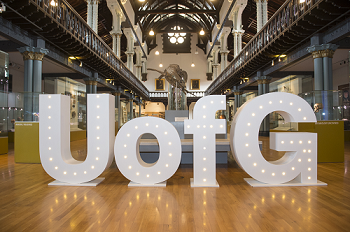Upcoming SMB seminars.
Published: 17 January 2025
Information on the upcoming School of Molecular Biosciences seminars.

Speaker - Dr Francesca Ester Morreale, The Francis Crick Institute
Where/When- 26th March at 1pm, Yudowitz LT
Title- Enabling targeted protein degradation in bacteria.
Bio- Ester obtained her PhD in Pharmaceutical Sciences from the University of Messina (Italy). She later joined Prof Walden's research group at the MRC PPU (Dundee, UK) for a firstdoc postdoc, in collaboration with Prof Alessio Ciulli. She then moved to Vienna (Austria), for a second postdoc in Dr Tim Clausen's group at the Research Institute of Molecular Pathology (IMP) . In 2023 Ester joined the Francis Crick Institute as a group leader. Her research group focuses on establishing targeted protein degradation technology in bacteria.
First published: 17 January 2025
<< News

